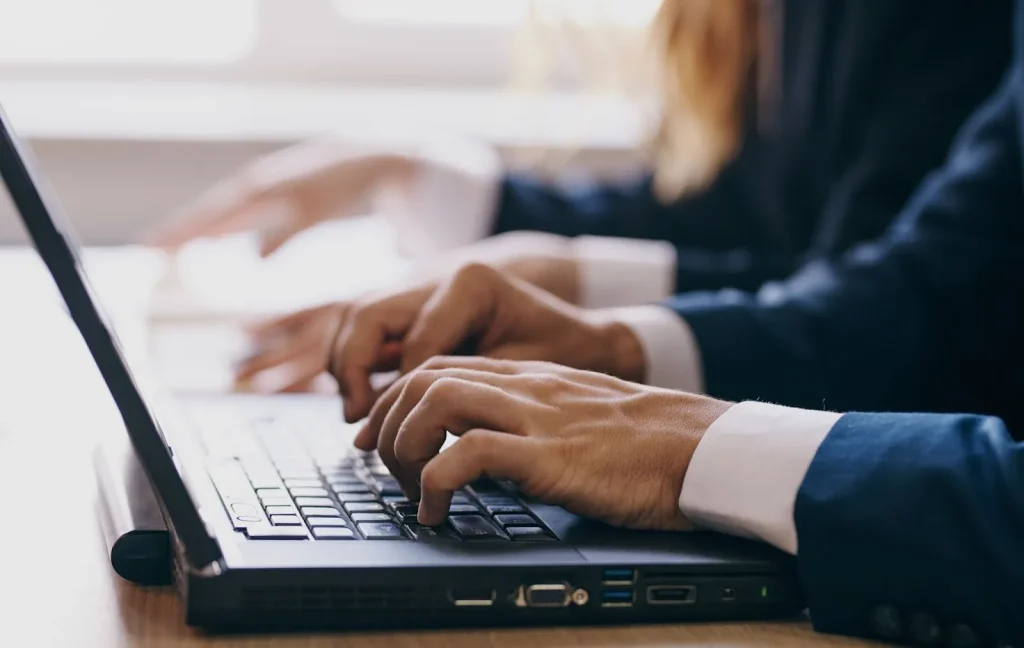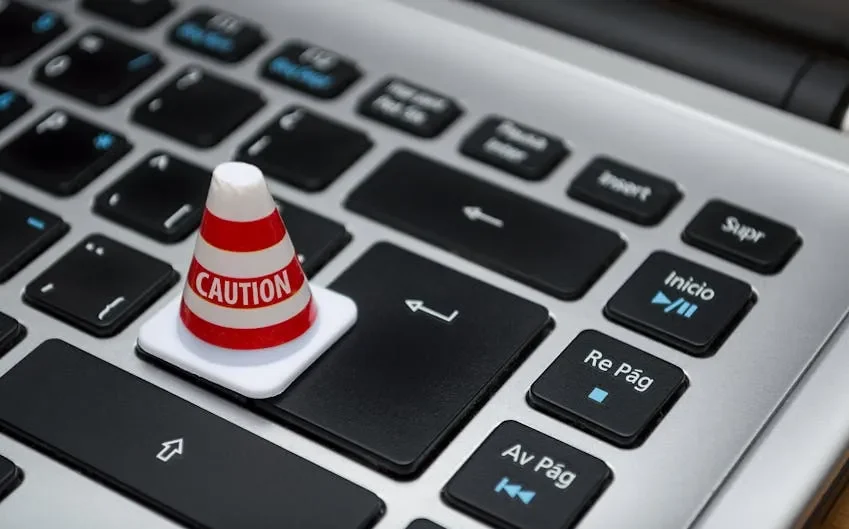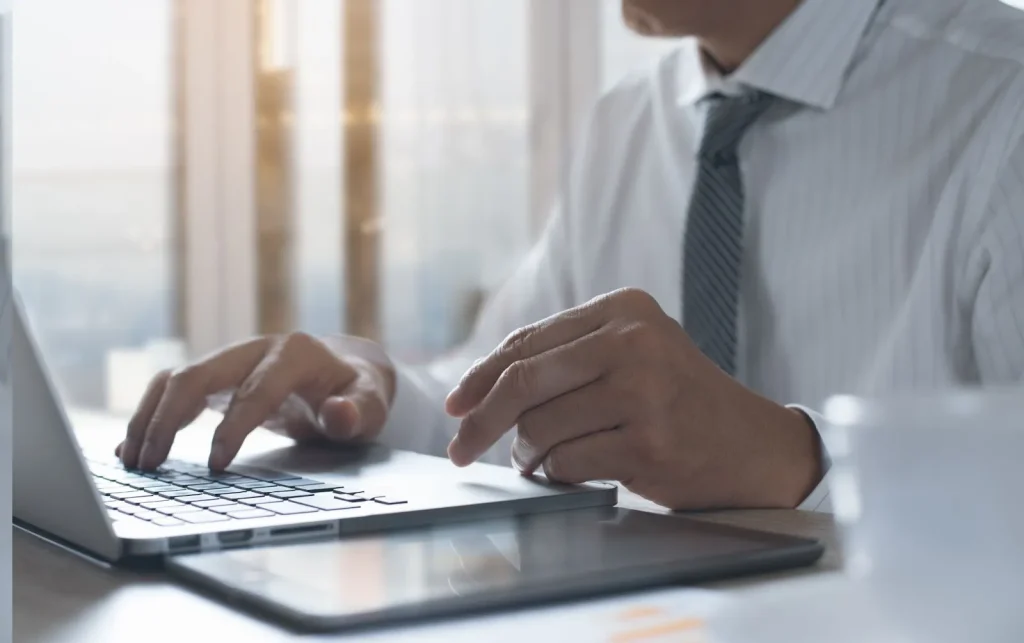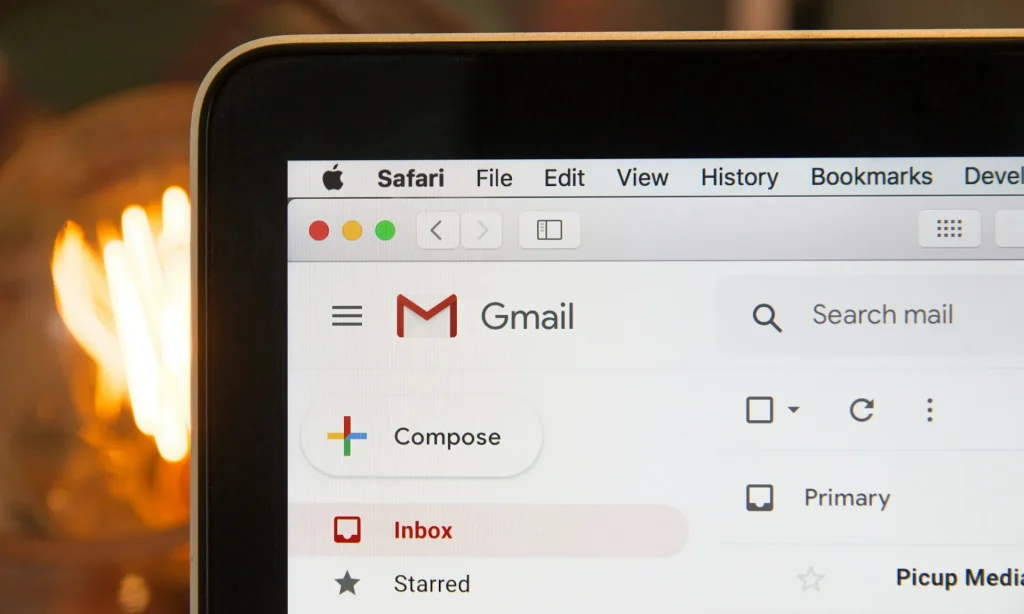Explanation of how to write Japanese business e-mails, manners, and commonly used words and phrases.

If you work for a Japanese company, you will probably encounter situations where you need to write business e-mails in Japanese. Business e-mail is an indispensable tool for internal and external communication. However, many people may find it difficult to write business e-mails that are not in their native language due to the language barrier.
Therefore, this article will explain in detail the basic order of writing Japanese business e-mails, templates, manners to avoid being rude to others, and commonly used words and phrases. Even if you are not confident in your Japanese business e-mail, this will help you learn the proper writing style and etiquette.
▼Goandup Picks Click here for recommended articles!
- Required before studying abroad! Goandup Nihongo+, an online Japanese language learning service
- This page introduces services for foreigners who wish to study in Japan or improve their Japanese language skills to learn Japanese online.
- Goandup Salon" community for foreigners living in Japan
- We introduce an online community where foreigners living in Japan can exchange information and interact with each other to support their life in Japan.
- Goandup Study" supports foreigners who want to study in Japan.
- This section introduces study abroad support services that provide comprehensive support to foreigners who wish to study in Japan, from preparation for study abroad to living in Japan.
- Where can I buy a prepaid SIM in Japan? Recommended SIM cards for foreigners are also introduced.
- How to purchase a prepaid SIM and suitable SIM cards for foreigners.
- The Complete Guide to Pocket Wi-Fi in Japan for Foreigners!
- We introduce how to select and recommend pocket Wi-Fi products that can be used conveniently in Japan.
- The Complete Guide to Finding a Job in Japan! Finding a job, changing jobs, and part-time work for foreigners
- This site provides foreigners who want to work in Japan with comprehensive information on how to find a job, recommended job sites, and other information necessary to find a job.
Japanese Business Email Writing Order and Templates

The format of Japanese business e-mails is basically the same as in other countries. However, there are a few points to keep in mind, such as the order of what to write and expressions unique to the Japanese language.
First, let's understand the basic flow of writing Japanese business e-mails.
1. subject name
In the business world, a large number of e-mails are exchanged every day. Therefore, it is important that the subject line be specific and concise so that the recipient can grasp the content of the e-mail at a glance. Be aware that an ambiguous subject line may cause the recipient to overlook an important e-mail.
2. addressee's name
In Japanese business mail, the address must always be written before the body of the message. The "addressee" is the name of the person, company, or department to whom the e-mail is addressed. When sending an e-mail to someone outside the company, it is common to add the honorific title "Sama" after the recipient's name.
3. greetings at the beginning of a sentence
The address should be followed by a brief greeting such as "Thank you for your continued support" or "It has been a very long time. This greeting indicates the beginning of the e-mail and at the same time serves to facilitate the relationship with the recipient. Be sure to choose an appropriate greeting depending on the situation.
4. closing words at the end of a sentence
After the body of the message, it is common to include a closing phrase, such as "Thank you for your cooperation" or "Please confirm your understanding. These closing words clearly indicate the end of the e-mail. It is also a way of expressing gratitude to the recipient and asking for cooperation in the requested matter.
5. signature
The e-mail ends with a signature that includes your name as the sender and the name of your company. The signature (shomei) should include your name, department, position, and contact information. Especially for non-Japanese, it is advisable to first write the name in the language of your own country and then add furigana in katakana next to it. Since hiragana is unnatural in business mail, katakana is generally used for furigana.
The above is the basic order and template for writing Japanese business e-mails. Next, let's look at some important manners in writing business e-mails.
Japanese Business Email Manners to Avoid Being Rude to Others

When writing Japanese business e-mails, it is very important to observe good manners so as not to be rude to the recipient. Especially for non-Japanese, the rules for using honorific expressions and writing e-mails may seem difficult if you are not used to them. Here we explain two important manners in Japanese business e-mail.
1. use honorifics
In Japanese business e-mail, it is considered good manners to always use honorific expressions. By using honorifics, you can show respect for the other party. Basic honorific expressions include "〜damasuます," "〜surasashimasu," and "〜sasemashitasutamashimasu. It is also important to use the proper use of humble and honorific expressions.
If you are not confident in your use of honorifics, you can learn by referring to example sentences or by using books and websites on how to write business e-mails.
2. write in a short, easy-to-understand manner
Business e-mail is a tool for accurately conveying necessary information within a limited time frame. Therefore, the content of the e-mail should be clear and concise. The key is to avoid lengthy explanations and to organize them in an easy-to-read manner, for example, by using bullet points.
Also, try to use plain language as much as possible, as difficult words and technical terms may not be understood by the recipient. If the content of the e-mail is difficult to understand, it may cause misunderstanding or unnecessary communication.
Next, we will discuss words commonly used in Japanese business e-mails.
Words commonly used in Japanese business e-mail

Many words that are not commonly used in daily conversation appear in Japanese business e-mails. Understanding the meaning and usage of these words is essential for smooth communication. Here we will cover five typical words.
1. onchu
Gonaka" is an honorific title that follows the name of an organization or group, such as a company or department. For individuals, "Sama" is used, but when addressing an organization or group, "Gonchu" is used, as in "00 K.K. Gonchu.
2. each rank
Kind regards" is a polite way of expressing "Ladies and Gentlemen. It is used when sending an e-mail to multiple parties. For example, writing "To whom it may concern" means "To whom it may concern.
3. plain
The word "plain" is a formal way of expressing "always" or "usually. It is often used as a greeting at the beginning of an e-mail, as in "Thank you for your continued patronage.
4. your company / our company
Your company" is a polite way of referring to the other party's company, and "our company" is a polite way of referring to your own company. Onsha" has the same meaning as "your company," but "your company" is used mainly in conversation, so "your company" is generally used in business e-mails.
5. sigu (honorific)
Sincerely" is the English equivalent of "Sincerely" used to conclude a business e-mail. It is the English equivalent of "Sincerely" and is used at the end of an e-mail.
Remembering these words, which are commonly used in business emails, will not only help you understand them better when reading emails, but will also help you when writing them.
Next, let's look at phrases commonly used in Japanese business e-mails.
Phrases commonly used in Japanese business e-mail

There are many standard phrases in Japanese business e-mail. It is useful to remember these phrases when writing e-mails. Here are three typical phrases.
1. thank you for your kind attention
Thank you for your continued support" is one of the most common greetings used in Japanese business e-mail. In English, it is "Thank you for your continued support (or business)." In English, it would be "Thank you for your continued support (or business). It is often used at the beginning of an e-mail, as in "Thank you for your continued support" or "Thank you for your continued business. This expression serves as a way of expressing your gratitude to the other party.
2. please give my best regards
The phrase "Best regards" is frequently used as a closing phrase in business emails and is the equivalent of "Sincerely" or "Best regards" in English. It is used when sending an e-mail with a request or inquiry, etc., to make a polite and favorable impression. There are a wide variety of variations, such as "Please accept my best regards" and "Thank you for your continued patronage.
3. our sincerest apologies
The phrase "I sincerely apologize" is used to express an apology to the other party. It is the equivalent of "Truly sorry" or "Sincere apologies" in English, and is used in situations where an apology is necessary, such as when dealing with a problem or reporting a mistake. As the phrase "sincerely" suggests, it can be used to convey an apology to the other party with sincerity.
These three are just a few examples, but if you can use these phrases, you will be able to write Japanese business e-mails smoothly.
Japanese Business Email Example Sentences

In this section, we will look at specific example sentences of Japanese business e-mails. Assuming an actual business scene, we will cover commonly used patterns of e-mails.
| Subject: 【 Contact 】 Regarding the meeting on October 00 00 Corporation Dear Mr. □□, Department △△ Thank you for all your help. My name is Yamada of 00 Corporation. I am writing to inform you of the meeting on October 0 that we recently discussed. The location of the meeting has been changed to our conference room. We apologize for the inconvenience and thank you in advance for your cooperation. The start time and content of the meeting will remain unchanged. If you have any questions, please contact us. Thank you for your continued support. Taro Yamada Sales Department, 00 Corporation TEL: 03-1234-5678 Email: yamada@example.com |
This example email is to inform an outside business partner of a change in meeting location. It contains the basic components of a business e-mail, including the subject line, address, greeting, body, and signature. Also, standard phrases such as "Thank you for your cooperation" and "Best regards" are used appropriately.
You will learn how to write Japanese business e-mails by referring to the example sentences and actually writing the e-mails.
Serious employment support to help you realize your dream of working in Japan!

Do you want to work in Japan?
Let us "Goandup" make that dream a reality!
【 Program Features 】
✅ JLPT N3 level Japanese language acquisition
✅ Thorough preparation for the specific skills test
✅ Full support for job hunting in Japan
Business-focused one-on-one lessons will help you find a job in Japan in the shortest possible time.
【 Program Menu 】
- Individual Japanese language lessons
- Intensive curriculum to obtain N3, especially specialized lessons for business Japanese that can be used at work.
- Intensive curriculum to obtain N3, especially specialized lessons for business Japanese that can be used at work.
- Preparation for the Specific Skills Test
- Customized materials for specific skill tests will be used to focus on frequently asked questions and learning to pass the test.
- Customized materials for specific skill tests will be used to focus on frequently asked questions and learning to pass the test.
- Resume and CV support
- To create resumes and CVs tailored to Japanese corporate culture, and to brush up on self-promotion and motivation for application.
- To create resumes and CVs tailored to Japanese corporate culture, and to brush up on self-promotion and motivation for application.
- Interview Preparation
- Guidance on areas for improvement through mock interviews and feedback based on corporate interview scenarios. Learn interview etiquette and behavior unique to Japan.
- Guidance on areas for improvement through mock interviews and feedback based on corporate interview scenarios. Learn interview etiquette and behavior unique to Japan.
- career consulting
- Provide introductions to companies that match the participant's career goals, select companies to apply to, and provide advice on the level of knowledge required by the companies to which the participant is applying.
- Provide introductions to companies that match the participant's career goals, select companies to apply to, and provide advice on the level of knowledge required by the companies to which the participant is applying.
- Chat Support
- In addition to one-on-one individual lessons, we also accept casual questions via DM (visa application, living support, assistance in finding a room, etc.).
If you are serious about your career in Japan, join us now!
▶︎ for more informationclick here.
We will do our best to support your success in Japan!
summary
Japanese business e-mail may indeed seem difficult in some areas for non-native speakers of Japanese. However, by understanding the basic writing order, templates, manners, and commonly used words and phrases, you can gradually improve.
Please try your hand at writing business e-mails in Japanese, using the information explained in this article as a guide. You may feel confused at first, but you will naturally learn how to write as you actually write your emails.
Mastering Japanese business e-mail is a very important skill to facilitate business in Japan. Learn proper manners and appropriate expressions to make your business in Japan a success.
Your support will help us!
Thank you for visiting Goandup Picks. Our mission is to provide you with more useful information to show the world what Japan has to offer.
Your support will help us to further enhance our activities, so please support us!






